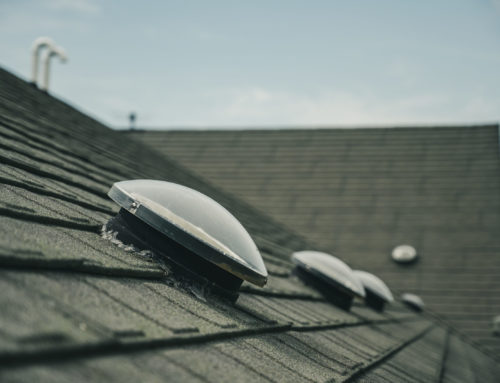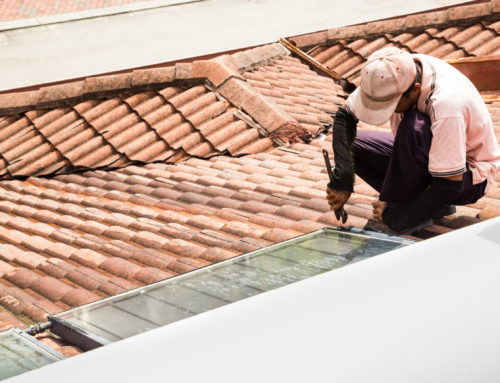There has never been a better time to install solar panels than now. The cost of using solar power has gone down due to competitive prices on the market. Let’s look at the pros and cons of renewable solar energy to see if it is the right fit for you and your home.
What Are The Pros And Cons Of Generating Your Electricity Through Solar Power?
Advantages Of Solar Energy
- Renewable Energy Source and Environmentally Friendly: Did you know that the energy the sun emits is 20,000 times more power than what is needed to supply the entire world? In other words, the energy the sun provides the earth in 1 hour is enough energy for all global energy needs for a whole year. Solar energy is a renewable power source that can be used anywhere in the world and is available year-round. The amount of solar power that you can harness varies depending on where you live, but there should still always be enough sun for your clean energy needs. For example, in the warmest part of the United States, solar energy systems will produce, on average, 4.7 kWh of power per 1 kilowatt of solar panels. In colder regions, such as the mountains and the East Coast, your solar panels will still produce 2.9 kWh per kilowatt of installed solar panels. So, you will be able to provide enough solar radiation and renewable energy for your home. Since the sun should be around for at least another 5 billion years, we are never at risk of running out of solar energy. Since we are harnessing solar energy as an energy source, instead of generating electricity from fossil fuels, there is a bonus of not increasing pollution and our carbon footprint by using solar systems. Although there is a small number of emissions from the production and installation of the solar panels, it is nowhere near the amount of constant greenhouse gas emissions from using fossil fuels as a form of electricity. According to the Department of Energy, the energy payback period is between 1-4 years for solar panels. That means that within 1-4 years, your solar panels will have exceeded the amount of energy required to produce them. That is a huge payback, considering that solar panels have a life of 25+ years.
- Reduces Electricity Bills: Another benefit of installing residential solar panels is reducing or eliminating the substantial electricity bill you receive every month. By producing your own renewable source of energy, you won’t need to rely on non-renewable energy from the utility companies. You can have energy independence, as well as save a significant amount of money every month. Studies from Solar Estimate show that in most states, you can save over $1,000 in energy costs per year by installing a solar power system. Multiply that by the 25-30 year life of your solar system, and you will save a significant amount of money!
- Low Maintenance Costs: Thankfully, once solar energy panels are installed, minimal maintenance is required. You only need to clean them a few times a year to ensure they don’t get dirty and, thus, can capture the highest amount of solar radiation possible. Since there are no moving parts, there is no wear and tear on the panels. There is also the added benefit of the solar system being silent, unlike other forms of alternative energy, like noisy wind turbines. Besides occasional cleaning of the solar panels, the only other maintenance that is required is changing the inverter every 5-10 years. The inverter is the single piece of equipment that will need to be changed since it is continually working on converting solar energy into electricity (photovoltaic or solar PV) or heat (solar thermal).
- Shared Community Solar Panels: In some cloudier areas, or if you have a smaller home or roof, you may not be able to produce quite enough solar power on your own. Most places, however, have a simple fix. With community solar gardens, you can have solar electricity for your home, without actually having rooftop solar panels. The solar panels are typically installed on open, vacant land, where they have the most access to sunlight, and you and many in your community can benefit from a solar energy system. With community solar, the cost of installation is also cheaper, since the panels are in bulk.
- Control Over Rising Power Prices: Those that have rented or own a home, are well aware of how high your electricity cost can be, and how often they can fluctuate, based on the season, or whenever the power company feels like it. When you use solar panels as a source of energy, you can know exactly how much you will be paying for electricity over the 25-30 year life of the solar panel system. You can accurately plan how much you will spend per year on electricity since you know how much each kilowatt-hour of energy will cost you, based on what each panel produces. Most people only pay $0.10 per kilowatt-hour, which saves you on average $150 per month in power bills, and savings in the range of $30,000 over the life of your solar system. That is a significant amount of savings.
- Solar Can Earn You Money Through Solar Renewable Energy Credits And Net Metering: In addition to huge savings on your power bill, you can even make money off of your solar system in some cases. If you produce excess electricity, you can sell it back to the power grid. You are compensated through solar renewable energy credits and net metering and can earn extra money off of the excess electricity that your solar panels generate. So, not only are you saving money in not having to pay a power bill every month, but you are also earning some extra cash flow by selling any excess electricity back to the utility companies.
- Financial Support From The Government Or State: You can receive up to 26% in a federal tax credit just for installing solar panels for your home. In most areas, you can qualify for additional grants and rebates, where you can cut the cost of a solar system more than 50% in the end, making it well worth the initial investment.
- Solar Improves The Value Of Your Home: Due to the many benefits of having solar energy technology at your home, when the time comes to sell your home, you can sell your home for more than you could have otherwise. Having clean energy, where the cost of installation has already been taken care of, will significantly increase the property value of your home.
- Technology Development: With technology constantly evolving, the likelihood of solar systems improving in the future is very high. With solar technology improving, that means that not only will solar panels become cheaper in the future, but they could also generate more electricity and be even more efficient.
Disadvantages Of Solar Energy
- Initial Cost Of Installation: The initial cost of solar panel installation can get expensive. However, once you have the initial cost of solar panels out of the way, the cost of maintaining the system is minimal. Most solar companies will also offer a payment plan, which will help with the down payment for the solar system. As mentioned above, you can also qualify for a tax credit or solar incentives, which will make the solar panels less expensive as well.
- Solar Panels Don’t Work For Every Kind Of Roof: Depending on the type and size of the roof you have, it may be difficult for a solar company to install a solar system as a renewable energy source. If your home doesn’t allow for a rooftop solar installation, you can either use ground-mounted solar panels or subscribe to a community solar garden. It’s a handy way to use renewable clean energy still if you can’t use your roof.
- Weather Dependent: The efficiency of a solar system drops somewhat when it is cloudy or rainy. You can get around this, however, by storing the excess solar electricity you receive in batteries, like the Tesla Powerwall, to then be used when needed. The same concept applies at night. When it is evening, and your solar panels are not generating power, you can use the electricity you stored during the day as well.
- Solar Energy Storage Can Be Expensive: Since you will be using batteries to store the excess electricity, you will want to make sure you have enough batteries or solar cells, as well as enough space to store them. While the batteries themselves can be a little expensive, it is well worth it, so you can save excess energy, to be used when needed. And, luckily, our highest demand for electricity peaks midday, which is when the sunlight is the strongest and generates the most electricity. That way, you won’t need to store as much power for a time of need, which means you won’t have to purchase as many batteries.
- Solar Doesn’t Move With You: A downside to a solar system is that you can’t take it with you when you eventually move. So, if you move, you will need to pay to install another solar system at your new house, to use renewable energy still, and partake of its benefits. There is a silver lining, though. Selling a home that already has solar panels installed will significantly increase your property value and make your home more desirable on the market. You can then take the extra income you received from selling your home that had solar panels installed and use the money to put down for a brand new solar system at your new home.
- Associated With Pollution: During the manufacturing of the solar panels, it can emit some greenhouse gas emissions more harmful than carbon dioxide that comes from fossil fuel. However, the amount of pollution that the manufacturing of the solar equipment creates is so much less than the pollution of natural gas once the panels are installed and in use that it makes using solar panels as a source of energy well worth it.
As you can see, there are many more benefits to using renewable solar energy than not. Choose today to explore the solar energy options in your area and see how you can not only save money in power bills but also be environmentally friendly.

